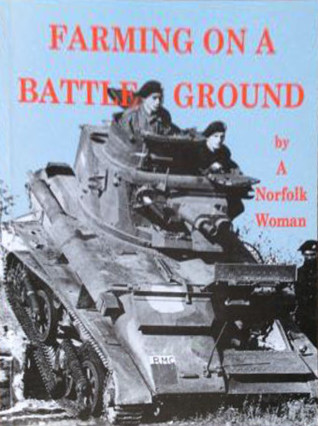Gumble's Yard - Golden Reviewer's Reviews > Farming on a Battle Ground
Farming on a Battle Ground
by

by

Interesting contemporary (from around 10 years from 1937/38) first party account written anonymously by Lucilla Reeve of Tottington ((https://en.wikipedia.org/wiki/Totting...) in Breckland.
She was a pioneering female Land Agent (for the Lord Walsingham/Merton Estate in Breckland) and well known for her regular article writing/broadcasts at a local and national level, her innovations and her eccentricities (for example a strong belief and practice in Dowsing and an insistence on holding Rogation services to bless her crops)
Less edifyingly she was known for a formal involvement with Oswald Mosley (as – perhaps similarly to Henry “Tarka the otter” Williamson she found the socialist part of his National socialism and his protectionist British agricultural policies appealing).
The book effectively starts with her trying to find a tenant for what was perceived as a barren farm (Bagmore in Sanford) in a distressed farming market (post-depression years), she decides to take on the farm herself. The book contains details on the various fields she owns and strategies she employs both as a land agent and a farmer – some of which lacks a little interest.
The most interesting part of the book though relates to the subsequent events when war breaks out. The author makes reference to the suspicion/persecution she was under: suspected – not surprisingly to the reader – of being a Nazi sympathiser. But the key to the novel was the establishment of a battle training area at Stanford which initially just interferes with her farming (and also causes her to be upset at the arrogance and war-hunger of men) but eventually leads to a forced evacuation of Tottington and effectively the confiscation (with limited compensation) of her farm.
Later, after living in self-assembled huts on the edge of the Battle Ground she takes a second smaller farm – finding out only afterwards that the previous incumbent killed himself. Tragically a postscript records that Lucille herself killed herself in 1950.
Overall an interesting book - particularly as I grew up on the edge of the Battle Ground – which still exists with Tottington one of a number of now effectively ghost/abandoned villages within it.
I bought this book from the newly re-opened second hand bookshop at the National Trust’s Blickling Estate, the largest second hand bookshop in East Anglia.
She was a pioneering female Land Agent (for the Lord Walsingham/Merton Estate in Breckland) and well known for her regular article writing/broadcasts at a local and national level, her innovations and her eccentricities (for example a strong belief and practice in Dowsing and an insistence on holding Rogation services to bless her crops)
Less edifyingly she was known for a formal involvement with Oswald Mosley (as – perhaps similarly to Henry “Tarka the otter” Williamson she found the socialist part of his National socialism and his protectionist British agricultural policies appealing).
The book effectively starts with her trying to find a tenant for what was perceived as a barren farm (Bagmore in Sanford) in a distressed farming market (post-depression years), she decides to take on the farm herself. The book contains details on the various fields she owns and strategies she employs both as a land agent and a farmer – some of which lacks a little interest.
The most interesting part of the book though relates to the subsequent events when war breaks out. The author makes reference to the suspicion/persecution she was under: suspected – not surprisingly to the reader – of being a Nazi sympathiser. But the key to the novel was the establishment of a battle training area at Stanford which initially just interferes with her farming (and also causes her to be upset at the arrogance and war-hunger of men) but eventually leads to a forced evacuation of Tottington and effectively the confiscation (with limited compensation) of her farm.
Later, after living in self-assembled huts on the edge of the Battle Ground she takes a second smaller farm – finding out only afterwards that the previous incumbent killed himself. Tragically a postscript records that Lucille herself killed herself in 1950.
Overall an interesting book - particularly as I grew up on the edge of the Battle Ground – which still exists with Tottington one of a number of now effectively ghost/abandoned villages within it.
I bought this book from the newly re-opened second hand bookshop at the National Trust’s Blickling Estate, the largest second hand bookshop in East Anglia.
Sign into Goodreads to see if any of your friends have read
Farming on a Battle Ground.
Sign In »


